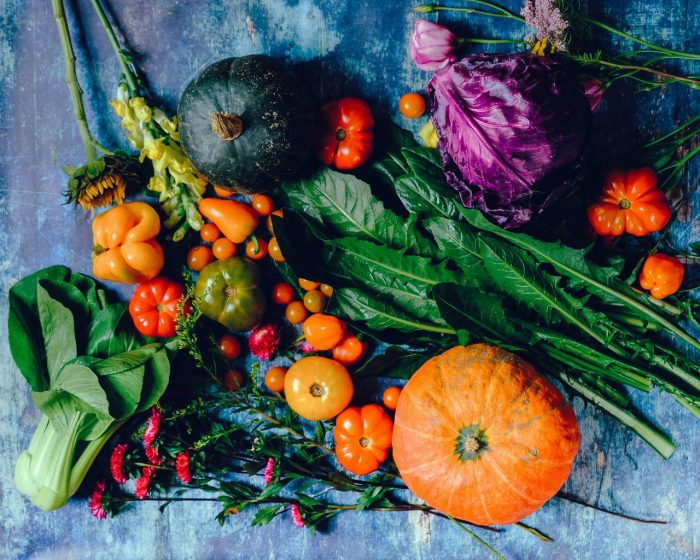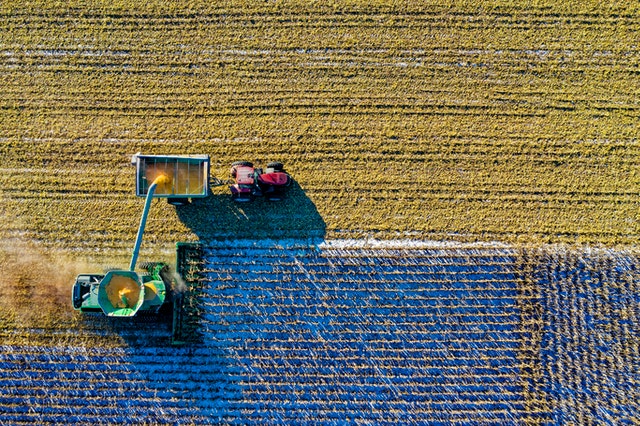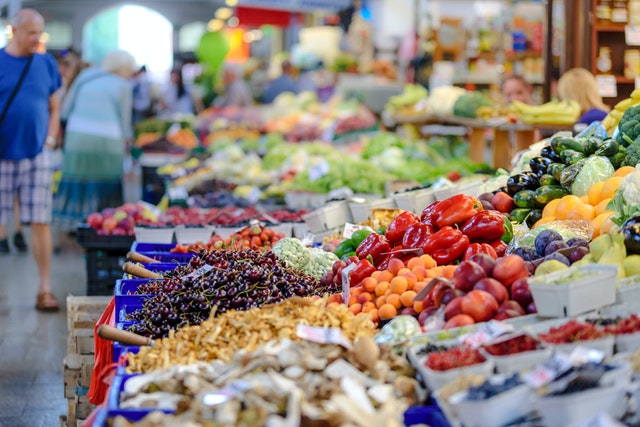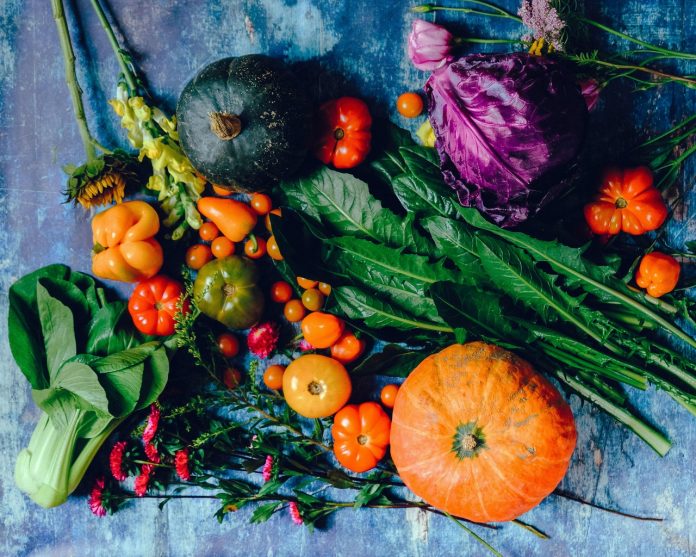When you are in the grocery store, it can be overwhelming to see the number of items such as produce that are marked organic. After all, is it that much better for you than regular foods? What’s the difference between items that are organic, versus the ones that are non-organic? Let’s look at how these food products can differ, and what you can do to make smart choices for your family while grocery shopping…. without getting completely overwhelmed!

Organic foods are nothing new – after all, the Organic Trade Association noted that in 2019, sales of organic foods totaled over $50 billion dollars, up from $39 billion in 2014. For the most part, people think that organic foods are better than non-organic in regards to how they affect the environment and that they are healthier than foods that aren’t organic. But what does it mean when a food is organic?
What are Organic Foods?
In essence, organic foods have basically been farmed without the use of pesticides, chemicals, or other added chemicals. Organic foods also can’t include things like artificial colors or sweeteners. Popular organic items include meat products, produce, and even certain cereals! There is research that shows that consuming organic foods may actually provide more nutritional content than regular foods, but those factors can vary based on how the food is grown and handled.

One study, in particular, showed almost a 70% increase in antioxidants in foods grown and consumed that were organic, as well as higher levels of micronutrients like Vitamin C! Even so, much of the evidence out there today is on the fence as to whether or not organic foods really are more nutrient-dense than their non-organic counterparts. With that said, be mindful of what’s important to you in regards to being fresh.
According to the Environmental Working Group, there are certain fruits and veggies that are more prone to pesticide usage, and these include items like peaches, grapes, spinach, strawberries, potatoes, cucumbers, bell peppers, and cherry tomatoes. If you’re aiming for organic, these would be the best ones to look for!
What are Non-Organic Foods?
On the other end of the spectrum, you’ve got the non-organic produce. These foods typically use some type of pesticide or other chemical during the production process and can be modified during production as well. Granted, using these methods to grow foods can help to limit bacteria that might pop up. Non-organic items are usually much cheaper than organic as well. On the flip side, we don’t know if there are any long-term side effects from consuming the chemicals that might be used on non-organic foods. Most of the time, these items won’t have the nutrient density that you’ll find in organic foods.

Some foods that you’ll find on the shelves that are part of the “Clean 15”. These are foods that are typically low in chemicals and pesticides. These are also the items that you can get non-organic if you so choose. These include items like sweet potatoes, avocados, grapefruit, mangos, mushrooms, pineapples, onions, and asparagus, just to name a few.
Organic vs Non-Organic
Deciding on produce can be tricky when it comes to organic vs non-organic. Keep in mind that there are other products in the store that will have those labels as well. These products can include items like eggs, meat, and milk! You can find both organic and non-organic versions of beef, pork, dairy products, and chicken. Many people like to avoid hormones or antibiotics that might have been given to the animals prior to production by going the organic route.

When deciding between organic and non-organic foods on your next trip to the grocery store, just remember this – there are products on the shelves that say they’re organic….and they are still very unhealthy for you. For example, cookies or ice cream. Just because a product says it’s organic, doesn’t mean it’s lower in calories! Some of these items might even have more calories and fat as opposed to their non-organic counterparts. Be aware of what you’re getting before you add it to your grocery cart.
In Conclusion
Whether you’re going organic, adding in some regular products, or just scanning the shelves and aisles to see what would be best for you and your family, keep some things in mind:
- whether to go organic or non-organic
- wash your fruits and veggies before consuming them,
- pick produce when it’s in season – this will ensure that it’s the freshest that it can be!
Lastly, remember to check food labels (for packaged items) and read the ingredient list. Just because something is listed as organic, doesn’t mean it’s not full of unnecessary additives or tons of extra sugar. Do your research, read your labels, and decide what’s best for you and your family!
Other Helpful Articles:


